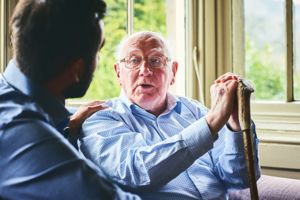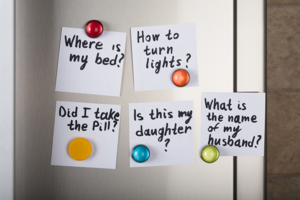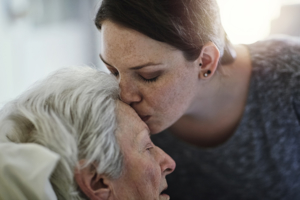This Latest Alzheimer’s Treatment May Help Combat Memory Loss

Learn about the latest dementia treatment and how it’s helping with memory loss.
Memory loss and Alzheimer’s go hand in hand, and until now, researchers have been stumped in determining how to prevent, or remove, those beta-amyloid and tau proteins at the heart of the problem. Yet recent research has shown incredible results in significantly reducing memory loss in those with dementia, through a cap-like device that transmits electromagnetic waves.
Shown effective in mouse experiments, trials proceeded to human participants, who wore the device twice daily for an hour over a period of two months. To confirm results, the participants were tested using the Alzheimer’s Disease Assessment Scale-Cognitive Subscale (ADAS-cog), and incredibly, a full four-point score increase was achieved at the end of the trial. In laymen’s terms, this equates to regaining a full year of cognitive functioning that had been lost.
Dr. Gary Arendash, CEO of NeuroEM Therapeutics, the company responsible for the study, added, “We were particularly surprised that this highly significant improvement in the ADAS-cog was maintained even two weeks after treatment was completed. The most likely explanation for continued benefit after cessation of treatment is that the Alzheimer’s disease process itself was being effected.”
Blood work, cerebrospinal fluid assessment, and MRI scans confirmed a disaggregation of beta-amyloid plaques and tau tangles, as well as improved communication between brain cells in the area key to cognitive function.
And perhaps most encouraging: all of the participants wanted to continue utilizing the head devices after the study was completed. The next step will be to engage in a larger clinical trial, to include the original participants and others, lasting 17 months. The goal is to make the device available to the public by 2021.
Stay tuned! Responsive Home Care, the Sunrise elderly care experts, remains on top of this and other trends in the quest to effectively treat, and eventually cure, Alzheimer’s disease. In the meantime, we will continue to provide highly customized, creative, compassionate dementia care for seniors at home throughout Broward County, Florida. Contact us at 954-486-6440 for a free in-home consultation to discover more about how we’re helping improve life for those with dementia.






